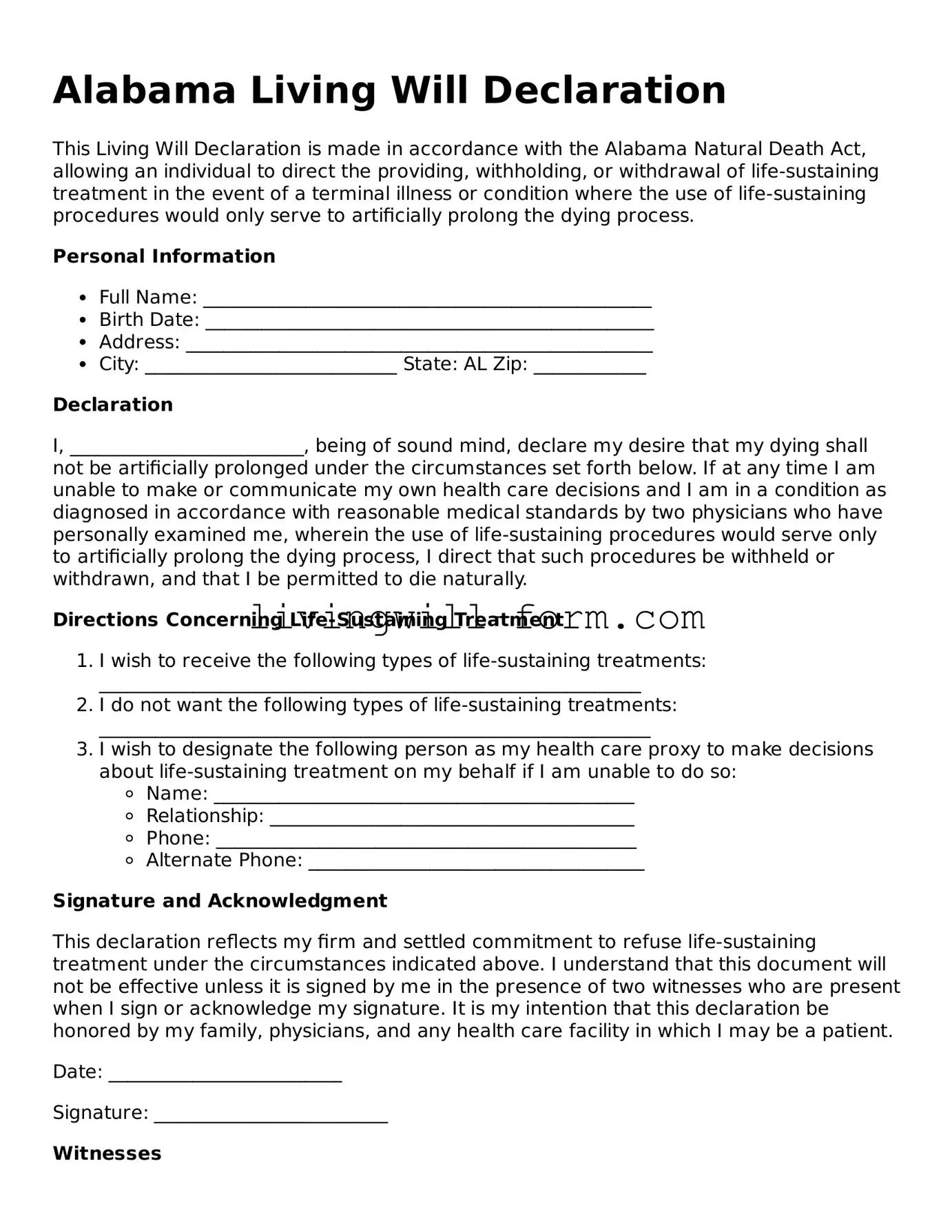What is a Living Will in the context of Alabama law?
A Living Will, under Alabama law, is a legal document that allows an individual to outline their preferences regarding medical treatment in the event they become unable to communicate their decisions due to illness or incapacity. It specifically addresses situations involving terminal conditions, permanently unconscious states, or other similar conditions, by providing instructions for the continuation, withholding, or withdrawal of life-sustaining treatments.
Who should consider completing a Living Will?
Any competent individual over the age of 19 (the age of majority in Alabama) should consider completing a Living Will. It is particularly important for those with strong preferences about their healthcare treatments or those with chronic illnesses, but it's generally advisable for all adults to prepare for unforeseen medical situations.
How can someone create a Living Will in Alabama?
To create a Living Will in Alabama, the person must complete a Living Will form, ensuring it meets the requirements set by Alabama law. The form must be signed by the individual making the Living Will (known as the declarant) in the presence of two witnesses. The witnesses must be adults who are not related to the declarant by blood or marriage and who do not stand to gain financially from the declarant’s death. It’s not required by law, but it can be beneficial to have the document notarized for additional legal assurance.
Does an Alabama Living Will need to be filed with a government agency?
No, a Living Will in Alabama does not need to be filed with any government agency. However, it's important to inform family members and healthcare providers about the existence and location of the document. It is also advisable to give a copy to the person's healthcare proxy, family physician, and include it in their medical records to ensure it's readily available when needed.
Can a Living Will be changed or revoked?
Yes, an Alabama Living Will can be changed or revoked at any time by the declarant, as long as they are of sound mind. The revocation can be done in any manner that communicates the intent to revoke, such as by destroying the document, creating a new Living Will, or by making a written or oral statement to that effect. An updated document or a statement of revocation should be provided to all parties who had the previous version.
What happens if there is no Living Will?
If an individual has not completed a Living Will and becomes incapacitated, decisions about their healthcare will fall to a legally authorized surrogate, usually a spouse or closest family member. This can sometimes lead to conflicts or decisions that might not align with the incapacitated person's wishes. Creating a Living Will helps prevent such situations by clearly outlining one's preferences in advance.
Are there any special considerations for completing a Living Will in Alabama compared to other states?
While the basic concept of a Living Will is similar across the United States, the specific requirements and forms can vary from state to state. Alabama law has particular stipulations regarding the witnessing of the document and the conditions under which the Living Will becomes operative. It is important for individuals to use the correct form for Alabama and ensure it is completed in accordance with state law to guarantee its validity.

